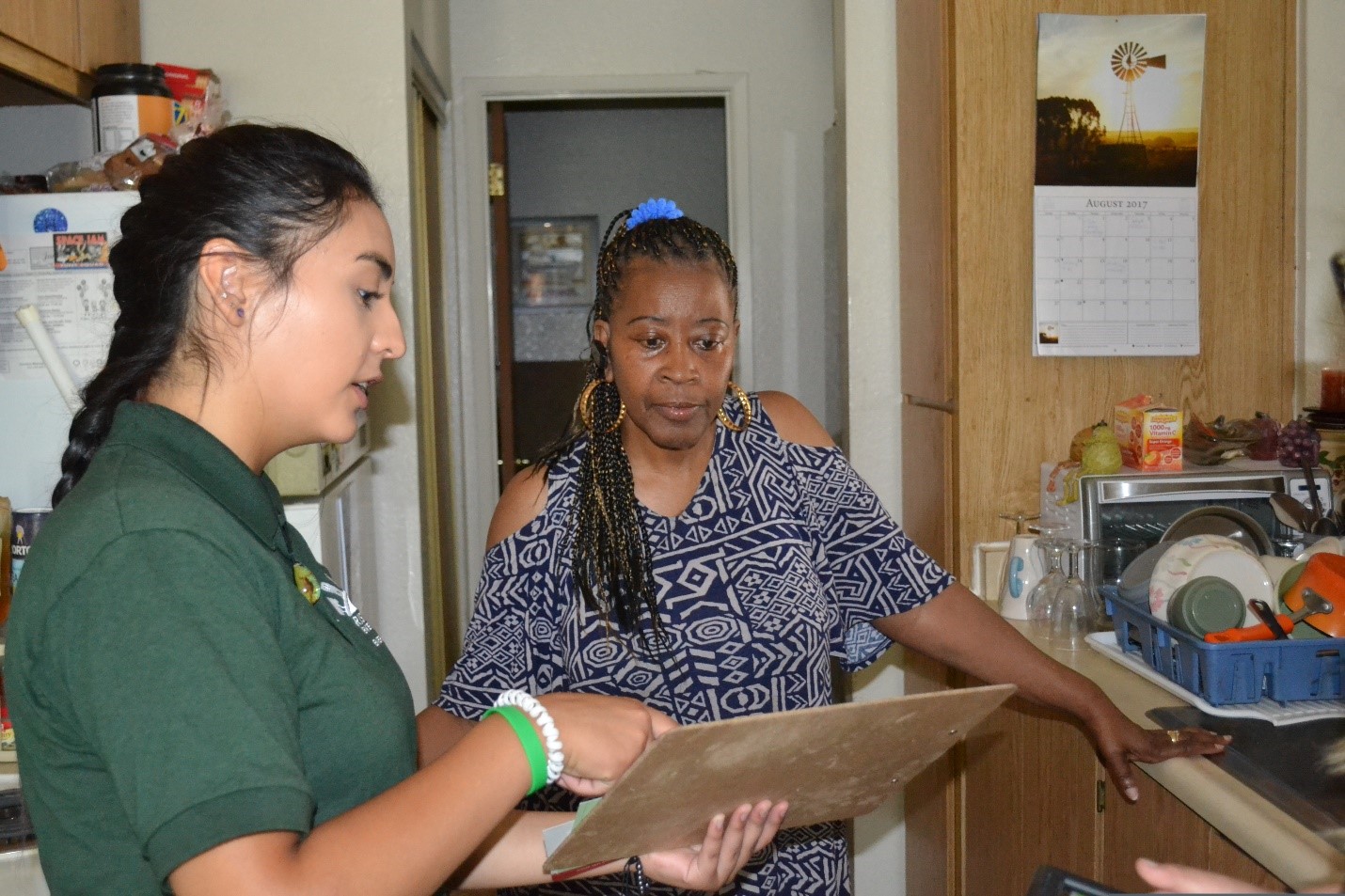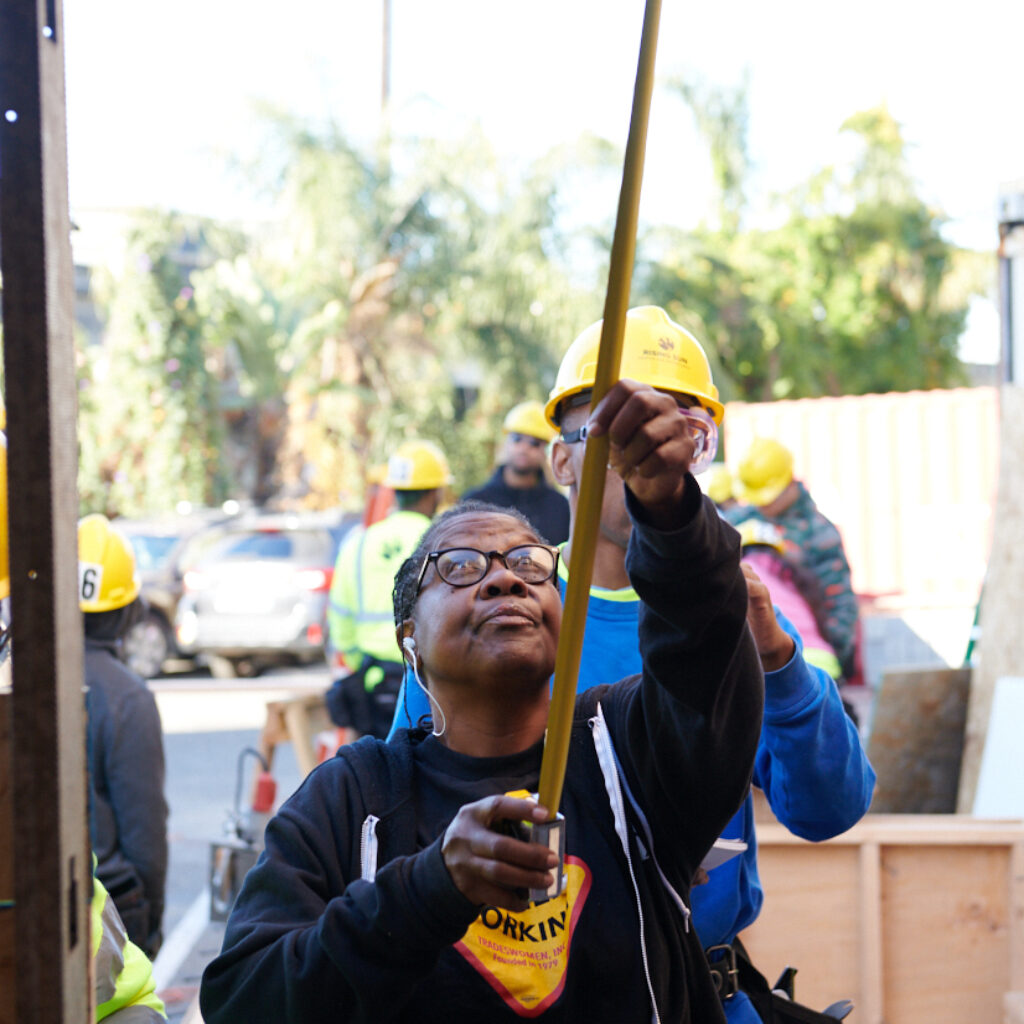What happens when we value bang-for-your-buck more than equity?
Things may be about to get tougher for the millions of Californians who have a hard time accessing energy efficiency programs and resources: low-to-moderate income families, seniors, renters, apartment dwellers, non-native English speakers, people in disadvantaged communities, and small businesses. The California Public Utilities Commission (CPUC) is undermining its own good intentions by unintentionally crippling the good work that community nonprofits do to bring energy efficiency and clean energy jobs to the hard-to-reach and underserved.
Rising Sun, which has provided underserved communities with home energy efficiency services and green jobs for local youth for the past 19 years, may no longer be able to do so. And we’re not the only ones – nonprofit community-based organizations across the state, as well as local governments, could face a dramatic loss in funding and programs due to changes in statewide energy efficiency policies that favor big companies and larger commercial customers.
The problem is that smaller customers, such as residential and small business customers and, even more so, hard-to-reach customers, may get left out from energy efficiency services despite paying the small “public goods charge” (PGC) on their gas and electric bills that fund these energy efficiency programs. This is because new energy efficiency business plans about to be approved by the CPUC incentivize only the easiest-to-get, cheapest-to-get energy savings. There’s no room in the cost-benefit analysis they use (called TRC) for any other community benefits. They’re also limiting the definition of customers who are considered “hard-to-reach”, making it a lot harder to serve to people who already have a hard time accessing these programs. These customers will end up paying for programs that they won’t be able to participate in.
Organizations like Rising Sun who serve these customers not only provide access to low-cost energy efficiency services, but also additional benefits that are invaluable and that support local communities. These additional benefits include things like workforce development, youth employment, good wages, health, safety, comfort, greenhouse gas emission reductions, and utility bill savings for customers.
Rising Sun believes it’s critical to combine energy efficiency with additional benefits. Each year, Rising Sun employs over 140 youth who provide over 4,000 residents in their communities with free Green House Call services. Focusing on underserved residents, Rising Sun’s program helps community members lower their utility bills, save energy and water, and reduce climate-damaging carbon emissions, while providing youth with meaningful summer employment opportunities where they learn valuable 21st century skills, giving back to their communities.
We focus on youth because young adults experience the highest rates of unemployment in California. As of February 2018, the unemployment rate for 16-19 year-olds in California was 17.3% and the rate for 20-24 year-olds was 7.4%, compared to the state’s overall unemployment rate of 4.3% in March of 2018. Studies show that periods of unintentional unemployment early in life can lead to years of lower earnings and a greater likelihood of future periods of unemployment; the New York Times reported that “those who work in high school have wages 10-15% higher when they graduate from college.” Many of Rising Sun’s youth come back each year to learn new skills and get leadership training. If these programs go unfunded, hundreds of youth will lose a meaningful summer job, career development, and advancement opportunities, potentially damaging their future earnings.
Rising Sun’s programs also reach people who conventional programs miss. Let’s take “Maria”, a 75-year-old Vallejo resident whose primary language is Tagalog. She owns her home but has limited disposable income and doesn’t qualify for low-income programs.
She pays her monthly utility bill, including that public goods charge – and those bills soar in the hot Vallejo summers due to an old, wildly inefficient air conditioner. There are HVAC rebates available online, but she’s not that tech-savvy and didn’t know what help she could get. Rising Sun met Maria at the Solano County Fair and explained the no-cost services available to her, as well as rebates to help make her air conditioning more efficient.
Maria signed up for a Green House Call because she trusted Rising Sun as a local nonprofit. We helped her cut her utility bills and get the help she needed – services provided in Tagalog by young adults from her community. The services that have helped Maria and thousands of others could now disappear.
Californians suffer from extreme income inequality exacerbated by the housing crisis and environmental impacts. Our underserved communities get hurt first and worst by climate change and feel the heaviest economic burden from energy use. They urgently need energy efficiency services that are now at risk.
Rising Sun is raising its voice on behalf of the communities we serve and other community-based organizations, to ensure the underserved receive equitable treatment and have equitable access to energy efficiency programs and resources. Contact the CPUC via the Public Advisor office (866-849-8390) and by attending the next voting meeting and speaking up during the public comments period (see http://www.cpuc.ca.gov/commissionmeeting/). Tell them to:
- Keep programs for customers who need it most and reduce barriers to participation
- Fix the problems with the cost-effectiveness calculation
- Keep the definition of hard-to-reach customers broad and inclusive
- Support the inclusion of nonprofits and local governments in serving customers who need energy efficiency most
By Julia Hatton, Director of Programs

